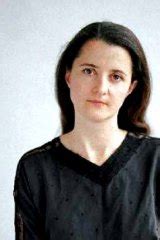Top 27 Quotes & Sayings by Julia Leigh
Explore popular quotes and sayings by an Australian novelist Julia Leigh.
Last updated on November 21, 2024.
I've never forgotten what it's like to be in your early twenties, which is not a particularly easy time. You've left your family, you've left the strictures of high school, and you're trying to break free and form yourself but you have to support yourself as well. We don't really give enough credence to that time of life and to its troubles.























